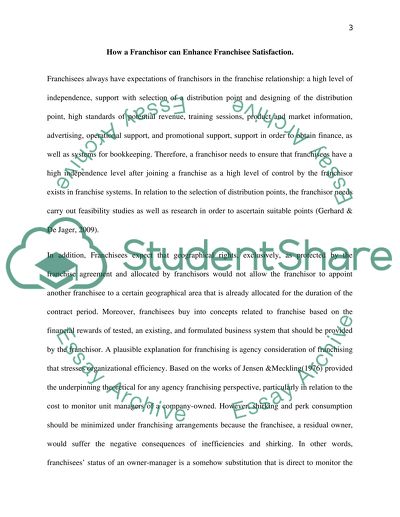Cite this document
(How a Franchisor can Enhance Franchisee Satisfaction Coursework, n.d.)
How a Franchisor can Enhance Franchisee Satisfaction Coursework. Retrieved from https://studentshare.org/marketing/1688013-explain-how-franchisors-can-enhance-franchisee-satisfaction
How a Franchisor can Enhance Franchisee Satisfaction Coursework. Retrieved from https://studentshare.org/marketing/1688013-explain-how-franchisors-can-enhance-franchisee-satisfaction
(How a Franchisor Can Enhance Franchisee Satisfaction Coursework)
How a Franchisor Can Enhance Franchisee Satisfaction Coursework. https://studentshare.org/marketing/1688013-explain-how-franchisors-can-enhance-franchisee-satisfaction.
How a Franchisor Can Enhance Franchisee Satisfaction Coursework. https://studentshare.org/marketing/1688013-explain-how-franchisors-can-enhance-franchisee-satisfaction.
“How a Franchisor Can Enhance Franchisee Satisfaction Coursework”, n.d. https://studentshare.org/marketing/1688013-explain-how-franchisors-can-enhance-franchisee-satisfaction.


